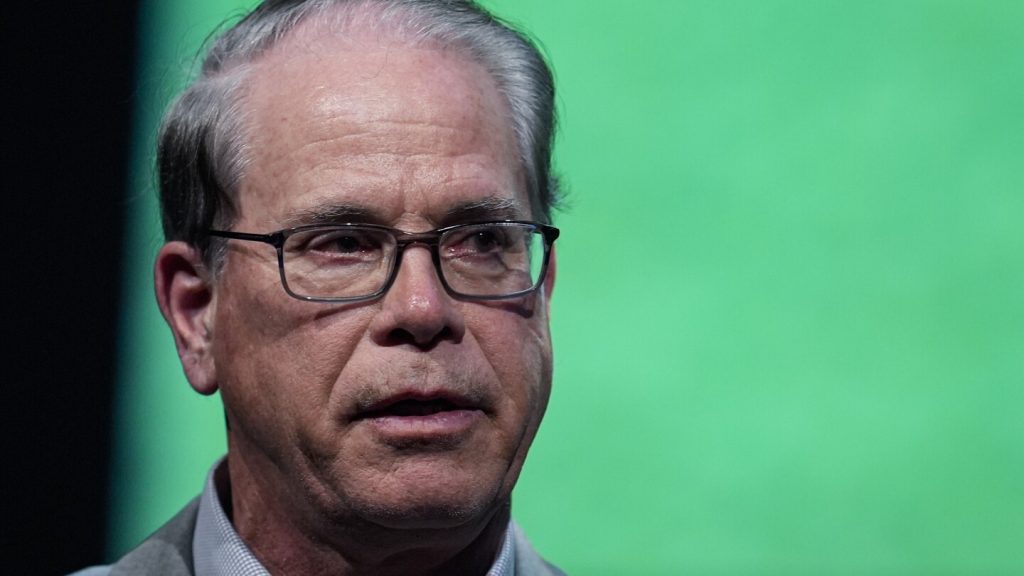In Indiana, the upcoming May 7 primary is crucial as it will determine the outcome of the general election in many races. The most-watched race is the GOP race for governor, where six candidates are vying for the seat being vacated by outgoing Gov. Eric Holcomb. This primary is the most expensive in Indiana history, with around $20 million spent in the first three months of 2024. The winner of the GOP primary will face Democratic candidate Jennifer McCormick and Libertarian nominee Donald Rainwater in November.
Among the six Republican candidates for governor, U.S. Sen. Mike Braun has been endorsed by former President Donald Trump. Braun brings name recognition and money to the race, having spent over $6 million on his campaign so far. Lt. Gov. Suzanne Crouch, known for running alongside Holcomb, has campaigned on slashing the state’s income tax and improving addiction and mental illness services. Businessman Brad Chambers and former commerce secretary Eric Doden are also running, with Chambers spending $6.7 million this year and Doden focusing on investing in Indiana’s small towns. Former Attorney General Curtis Hill, who lost the Republican nomination in 2020, and Jamie Reitenour are also in the race.
Braun’s decision to run for governor has created a domino effect in Indiana’s congressional delegation, leading U.S. Rep. Jim Banks to be the sole Republican candidate for U.S. Senate. Banks, an outspoken Trump supporter, will face either Marc Carmichael or Valerie McCray as the Democratic candidate in November. Indiana will also send at least three new representatives to the U.S. House, as Congressmen Greg Pence and Larry Bucshon have announced they will not seek reelection. Multiple candidates are vying for their seats, with notable matchups in different districts.
In the 6th district in east Indiana, there is a competitive race between state Rep. Mike Speedy and businessman Jefferson Shreve. Shreve, who previously ran an unsuccessful campaign for Indianapolis mayor, has loaned millions to his congressional campaign. In Bucshon’s district in southern Indiana, eight candidates are seeking to replace the congressman who has been in office since 2011. The Republican Jewish Coalition has spent $1 million to attack former U.S. Rep. John Hostettler, who has opposing views on the U.S. allyship with Israel, urging support for state Sen. Mark Messmer.
In central Indiana’s 5th district, U.S. Rep. Victoria Spartz faces tough competition in the primary after her reversal on leaving Congress. Her main opponent, state Sen. Chuck Goodrich, has outspent her by millions of dollars. These races in Indiana highlight the diverse political landscape within the state, with candidates from different backgrounds and platforms vying for key positions in both the state government and U.S. Congress. The outcome of the May 7 primary will set the stage for the general election in November, where Indiana voters will have the opportunity to shape the future of their state and representation in the federal government.















